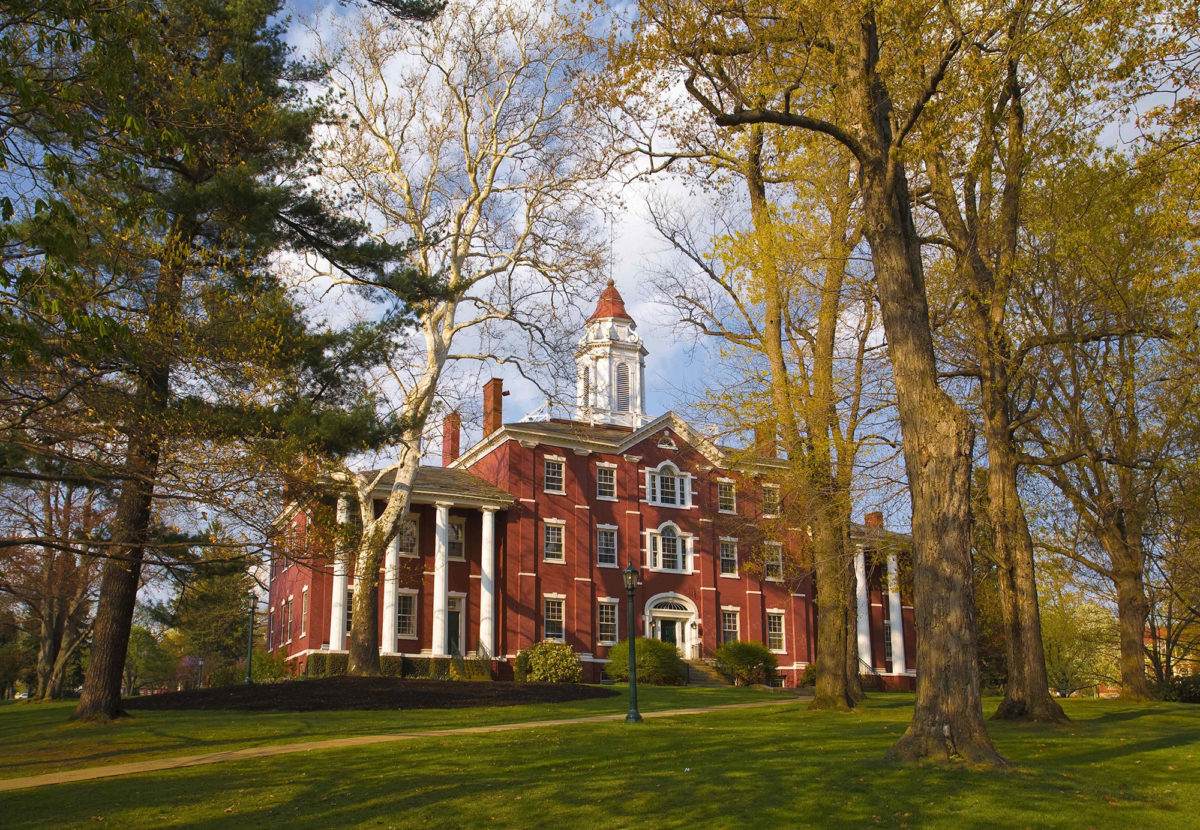
Allegheny College Joins National Effort to “Turn the Tide” in Higher Education
Jan. 25, 2016 – Allegheny College has joined the first comprehensive effort of its kind to bring leading colleges and universities together to reshape the college admissions process.
On January 20 at the New York Public Library, leading educators announced the launch of a report, titled “Turning the Tide: Inspiring Concern for Others and the Common Good Through College Admissions,” that offers concrete recommendations for how college admissions can promote greater ethical and intellectual engagement, dial down undue pressure to achieve, and level the playing field for economically diverse high school students.
“Colleges and universities across the country have come to recognize that we need to make the college admissions process more fair for students from all economic backgrounds and to find ways to change the college admissions process so that students do not feel compelled to feverishly rack up academic achievements, accolades and extracurricular experiences simply to impress admission boards,” said Cornell LeSane II, vice president of enrollment and dean of admissions at Allegheny College. “Allegheny has embraced the spirit of ‘Turning the Tide’ for some time and will continue to prioritize its principles and recommendations.”
Allegheny is one of 13 members of the Great Lakes Colleges Association, which has also endorsed “Turning the Tide.” GLCA colleges will develop and present on their websites application instructions that reflect “Turning the Tide” principles and recommendations.
“Turning the Tide” is receiving widespread—and positive—attention in the press.
“It could make a real difference,” said Frank Bruni in The New York Times. “The report also suggests that colleges discourage manic resume padding by accepting information on a sharply limited number of extracurricular activities; that they better use essays and references to figure out which students’ community-service projects are heartfelt and which are merely window dressing; and that they give full due to the family obligations and part-time work that some underprivileged kids take on.”
In May 2015 Allegheny College joined another national effort to reshape the way that colleges and universities evaluate applicants. The college announced that it was joining a growing list of colleges and universities that have gone test optional in their admissions practices.
The policy, which allows applicants to choose whether to submit standardized test scores such as SATs or ACTs with their college applications, recognizes that standardized test scores do not exclusively reflect a student’s full range of abilities or potential to succeed in college and that high school performance — as measured by rigor, grades and/or class rank — and less quantifiable factors, such as character, determination and love of learning, are the best indicators of success in post-secondary education.